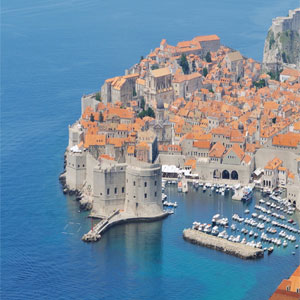CROATIA
is bout 4 million inhabitants


Croatia Real Estate Market
Croatia's property market is expected to remain strong in the coming years, thanks to robust demand supported by healthy economic growth. Croatia's property market is expected to remain strong in the coming years, thanks to robust demand supported by healthy economic growth, according to the Croatian Bureau of Statistics (CBS). Most Croatians are owner-occupiers. About 90.5% of Croatian households are currently living in an owner-occupied home or apartment, according to the Eurostat. The country's long-term rental market is very small. Most long-term rental properties are in Zagreb, Dubronik, and Split.
Total roundtrip transaction costs are high, ranging from 10% to 15% for old properties. The bulk of the cost is accounted for real estate agent's fees, at 3% to 6%, split between buyer and seller. The real estate transfer tax is 5% but does not apply to the first sale of new buildings.

International Investment in Croatia
The right of non-EU foreign nationals to buy a property in Croatia depends on reciprocity agreements between Croatia and the foreign buyer's home country. Foreign Buyers flock the costs. Croatia's high-end residential market continues to attract foreign buyers. About 70,000 foreigners own property on the Adriatic Coast. Only 3% of foreign buyers choose the City Capital, Zagreb. Luxury properties in Istria are popular among Germans, Austrians, and Slovenians. In Dalmatia, most luxury demand comes from the Croatian diaspora: Sweden, Slovakia, and the Czech Republic. Luxury homebuyers in Opatija are mostly Russians.
Of Croatia's 20 regions, the five most popular with foreign buyers are on the Adriatic Coast: Istria (33% of foreign-owned properties), Primorje-Gorski Kotar (26%), Split-Dalmatia (12%), Zadar (8%), and Dubrokniv-Neretva (6%).








